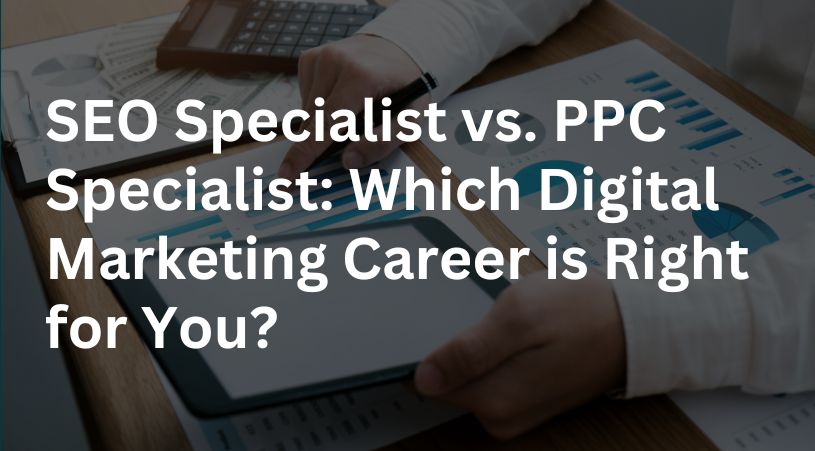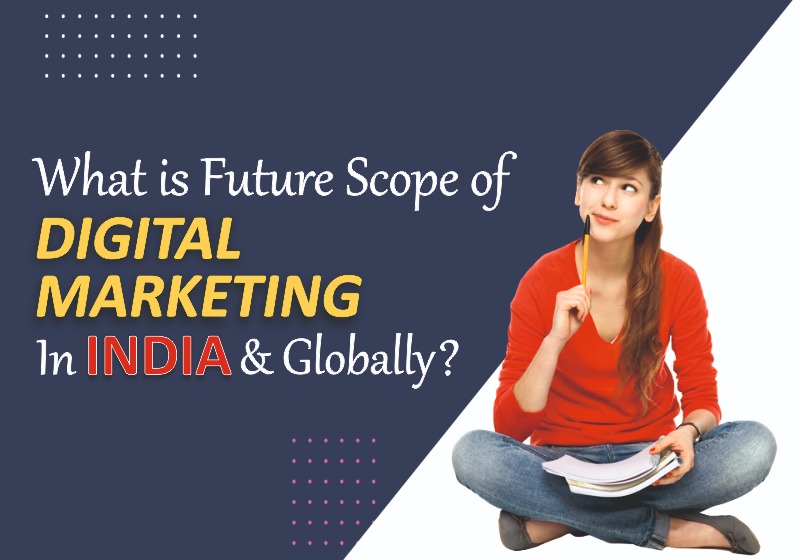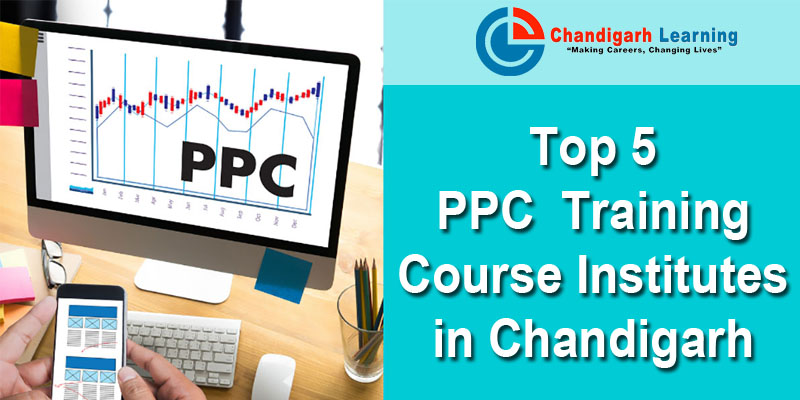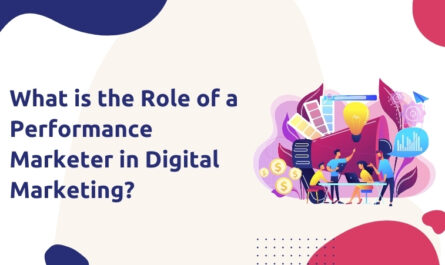If you’re considering a career in digital marketing, you might be wondering which path to take—SEO, focusing on organic growth, or PPC, managing paid campaigns. Both offer great opportunities with unique benefits and challenges. At Chandigarh Learning, we’re dedicated to helping individuals achieve their career goals.
Among the strongest tools for gaining this visibility are PPC (Pay-Per-Click) advertising and SEO (Search Engine Optimization). Both PPC & SEO are very effective ways of generating traffic to websites, but they demand different skill sets, strategies, and methodologies.
In this blog, we will guide you through the important steps to embark on your career in digital marketing, the different job roles you can take up, and the skills needed to thrive in this fast-paced industry. Among the most essential pillars of online marketing are SEO (Search Engine Optimization) and PPC (Pay-Per-Click) advertising.
What is an SEO Specialist?
If you are looking to start a career or scale the business ladder in online marketing, you might find yourself worrying about specializing in SEO or PPC. Both offer wonderful potential for a successful career, but each requires very different knowledge & skills, so being aware of their differences can help make an informed decision regarding the most appropriate course of action, aligned with your interests & goals.
In this article, we are going to break down the medium surrounding the core differences between an SEO Specialist and a PPC Specialist so you can choose which digital marketing career is ideal for you. Whether you are based in Chandigarh or wherever else, understanding these roles will provide you with the knowledge you require to make the decision on which path is ideal for your strengths, interests, and aspirations in the digital marketing world.
On-Page SEO: Optimization of Individual Web Pages
On-page SEO is a process to optimize individual web pages to increase their search rank position and make them more working and applicable for the users. It includes:
Title Tags: Composing simple, brief, and keyword-rich title tags that briefly explain the page content.
Meta Descriptions: Creating well-organized meta descriptions not just with keywords but also with the ability to force the users to visit your site.
Images and Alt Text: Ensure images are well optimized (compressed for fast load speeds) and include expressive alt text to make them more particular to search engines.
Content Optimization: Incorporating target keywords organically within the content, making it attractive & informative for users.
Internal Linking: Adding internal links to your content to other related pages of your website, so that users & search engines can easily access your website.The purpose of on-page SEO is to ensure every web page is user-friendly, easy to navigate, and keyword-rich for the most important keywords to your users.
Off-Page SEO: Building Power Using External Signals
Off-page SEO involves activities performed off your website in order to raise its credibility & authority with search engines. The majority vital method in this case is building backlinks links from other quality sites pointing to your website. This is a vote of confidence and can make your website rank exponentially higher in search engines.
Some of the other off-page SEO plans are:
Social Media Interaction: Sharing material on social sites to increase brand visibility and drive traffic back to your website.
Guest Blogging: Blogging on expert outside websites, which classically consists of a backlink to your site.
Influencer Marketing: Partnering with influencers to have your content increase virally and get more people to visit your site.
The more reputable & influential websites referencing yours, the better the probability of search engines allowing for your site of value and optimizing your search position in the future.
Technical SEO: Building a Site Technically Strong
Technical SEO is all about making the technical features of a site indexable, crawlable, and renderable by search engines in the most well-organized manner. This is vital because quality content will not rank well if search engines cannot inspect or crawl it properly. Some of the most vital aspects of technical SEO are:
Site Speed: Getting your site to load quickly so that it will not have a negative impact on user experience and search engine rankings.
Mobile Optimization: ensure your site is responsive and mobile-friendly, as more & more users browse the web on mobile devices.
HTTPS (Secure Website): Moving your site from HTTP to HTTPS provides a safe connection, which is a search engine ranking signal like Google.
XML Sitemap: Ensuring you have a properly formatted XML sitemap to help search engines index your pages.
Repairing Broken Links: Fixing any broken links or 404 errors that might hurt the user experience and SEO.
In short, technical SEO makes sure that a website runs smoothly, is crawlable for both the user and the search engine, and has an amazing user experience.
- Keyword Research: Finding the Correct Keywords to Target
Keyword research is the foundation of SEO. It includes the identification of the most suitable & worthwhile keywords to rank for, based on competition, search volume, and intent. Several tools (including Google Keyword Planner, SEMrush, or Ahrefs) are utilized by an SEO expert to recognize those keywords that may drive organic traffic to a website.
Search Volume: The number of searches a keyword receives in a month. More volume keywords attract more traffic, but are more viable.
Competition: The level of complexity to rank for an exact keyword. More spirited keywords may require more effort, both content & off-page SEO methods.
User Intent: Understanding if the keyword is searched to buy, learn, or find out is vital in identifying the correct segment of people to target.
What is a PPC Specialist?
While SEO goes the roundabout route of driving traffic to a website via organic means, PPC (Pay-Per-Click) marketing goes the direct route where companies pay per click on an ad. Your primary goal as a PPC professional is to run paid campaigns bringing high-quality targeted traffic to a website, which leads to conversions and earns a return on investment (ROI). PPC ads usually come on search engines such as Google Ads or social media sites such as Facebook Ads, Instagram Ads, and LinkedIn Ads.
The PPC advertising business needs a clear idea of paid campaigns, a bit of creativity in crafting good-looking ad copy, and a fair idea of performance metrics.
Let us divide the most critical work a PPC specialist does to make businesses reach their marketing objectives.
- Campaign Setup: Creating Ads that Support Goals
Setting up the campaign is one of the first activities that a PPC specialist does. The setup entails establishing the main goals of the campaign and linking them to the business goals. This can be very diverse based on the nature of the business & campaign goals, such as:
Brand Awareness: For companies that want to represent a service or product to more people.
Lead Generation: interact with users interested in signing up, downloading the content, or providing their contact details.
Sales & Conversions: Converting the users to customers & routing them towards completing a purchase or sale.
After setting goals, the PPC expert assigns a budget to the campaign, chooses the suitable ad networks, and chooses targeting parameters (like demographics, geolocation, or device) in an attempt to bring the right message to the right audience. It could be a Facebook Display Ad or Google Search Ad, whatever it is, installing it requires acuity so that each dollar spent brings the business one step closer to its objective.
- Keyword Research: Selecting the Proper Triggers for Advertisements
In PPC advertising, advertisements are triggered by keywords entered by individuals in social media or search engines. Keyword research is a vital component of selecting words that will draw the proper audience to the advertisements.
For instance, if a business is selling environmentally friendly cleaning products, the PPC specialist would undertake keyword research to identify high-intent keywords such as “best environmentally friendly cleaning products” or “non-toxic home cleaners.” PPC specialists utilize tools like Google Keyword Planner, SEMrush, or Ahrefs to analyze search volume, competition, and user aim and expose the most likely keywords to drive worthwhile conversions & clicks.
PPC specialists should also watch for negative keywords the terms on which they don’t wish to display their ads. This is a defensive measure against wasteful spending from non-relevant clicks, and also to use funds wisely.
- Bid Management: Get the Best Spend for Maximum Reach
PPC platforms are based on a bidding system where advertisers bid for the keywords they wish to target. The system also decides how much an advertiser should pay for each click of an ad. Bid management is the responsibility of changing bids so that the ads reach the correct audience within budget.
There are a few bidding strategies a PPC professional can use depending on campaign objectives:
Manual Bidding: Placing custom bids on placements or keywords.
Automated Bidding: Permitting the platform (e.g., Google Ads) to adjust bids based on performance metrics.
Target CPA (Cost Per Acquisition): Adjusting bids to achieve a specific cost per conversion target or acquisition.
By monitoring the bid performance continually, a PPC professional can ensure that the ad spend is being used efficiently, so the advertisements appear where and when they are supposed to, without overpaying for underperforming placements.
- Ad Creation: Developing Effective Ads to Capture Attention
A PPC professional is also tasked with developing the ads themselves, display ads, text ads, or video ads. Developing memorable ad copy & imagery to draw eyeballs is the spirit of campaign success. A successful ad will:
Grab Attention: Ads need to be noticed in search results or social streams by employing interesting, easily visible CTAs, headlines, and attention-grabbing images
Align with User objective: The ad copy should be in line with what the user is looking for or interested in on social media.
Emphasize Benefits: Emphasize how the service or product can solve a user’s problem or please a requirement. For instance, for an environmentally friendly product, the ad copy can stress its health effects or advantages on the environment.
Give a Clear Call to Action: Ask users to move forward, e.g., “Shop Now,” “Learn More,” or “Get Started.”
In search ads, the title and description should be optimized for click generation by the PPC expert, and in display ads, the visual ad must be retained, and targeting of the right audience must be achieved.
- Performance Analysis: Optimizing Campaigns & Tracking Success
One of the the majority important aspects of being a PPC expert is to regularly monitor campaign performance and real-time adjustment of strategy based on performance metrics. Facebook Ads Manager, Google Ads, and other such platforms provide huge analytics that allow PPC experts to track a diversity of metrics, including:
- CTR (Click-Through Rate): The proportion of people who clicked on the ad to the number of people who saw it.
- CPC (Cost Per Click): The mean cost per click of the advertisers.
- Conversion Rate: The number of users who have clicked on the ad and completed the desired action (sign-up, purchasing, etc.).
- ROAS (Return on Ad Spend): Revenue generated by the campaign against the advertising spend.
By constantly monitoring these metrics, a PPC expert can see which ads and keywords are converting and need to be adjusted. For instance, if the CTR on an ad is low, the expert might edit the copy or targeting to make it more attractive. If the conversion rate is low as well, then the landing page experience may need to be optimized to convert better.
Campaign optimization is the ongoing process of making adjustments, be it to bid levels, ad copy, keyword lists, or targeting options, so that the ad spend delivers the highest possible return.
Key Differences Between SEO & PPC
Though SEO & PPC both have the same ultimate goal to get targeted visitors to a site, they do it in intrinsically different ways. The key distinctions between the two roles are summarized below:
- Paid Traffic vs. Organic
SEO: This is about earning organic traffic through unpaid channels, optimizing a site for long-term visibility. The result may take time to happen, but if earned, organic traffic can continue to pour in with comparatively less maintenance.
PPC: Prioritizes producing paid traffic. PPC campaigns bring immediate results but need stable spending to keep their visibility.
- Cost Structure
SEO: The primary cost of SEO is time & effort. Although you may have to spend on expert services or tools, organic traffic is free after you rank better on search engines.
PPC: It comes with direct spending, as you are charged each time your ads get clicked on. The amount could be varied based on the level of competition for your niche and keywords.
- Time to See Results
SEO: SEO is a long-term strategy. It will take a few months to get quantifiable results, but the benefits last longer once you achieve high rankings. With time, SEO can be a passive source that keeps on bringing traffic.
PPC: PPC provides urgent results. The instant you run your advertising campaign, your advertisements are live on the internet, and you start getting clicks. But when you stop spending money, traffic right away drops.
- Tools & Skills
SEO Specialist: Requires in-depth knowledge of content creation, search engine algorithms, and optimization techniques. Google Search Console, Google Analytics, Moz, Ahrefs, SEMrush, and Yoast SEO are some tools often used.
PPC Specialist: Must have experience with paid advertising platforms, keyword bidding strategies, and performance optimization. Must have experience with platforms like Facebook Ads Manager, Google Ads, Bing Ads, and Google Analytics.
- Targeting Audience
SEO: Targets users because of organic search intent. SEO can rank your site for general or long-tail keywords that people are keenly looking for.
PPC: Provides more targeting to the audience. You can personalize your advertisement by user interests, demographics, where they are, behavior, and so on.
Which Career Path is Right for You?
Now that you have a better idea of what an SEO Specialist and a PPC Specialist do, how do you decide between the two for your career? Here are some factors to think:
- Short-Term Results vs. Interest in Long-Term
SEO:
If you prefer long-term methods & enjoy watching the work build up over months and years of optimization, gradually refining a website’s rankings, and observing it all come together, SEO would be an ideal option for you.
PPC: If you like rapid wins, and instant results, and are intrigued by data-driven campaigns, PPC could be your ideal job. PPC offers faster results but at the cost of ongoing investment in time & money.
- Analytical Skills
SEO: While SEO does involve analytical thinking, it also requires a great deal of creativity particularly when optimizing content & creating link-building strategies. SEO specialists are more likely to work on the content side & must think about how users are going to search for information.
PPC: PPC specialists spend a lot of time reviewing data and adjusting ad campaigns to pick up performance. If you are detail-oriented and enjoy working with data, then you may excel in PPC.
- Budget Control
SEO: SEO is not a direct money spent on traffic but it requires a lot of time & effort. It’s ideal for those who love organic development and are willing to spend time harvesting fruits.
PPC: PPC involves managing ad budgets and ensuring the investment yields quantifiable returns. If you are at ease with managing budgets and optimizing campaigns for maximizing PPC, ROI may suit you.
- Career Growth
SEO: Since there is so much scope for growth, an SEO expert has huge growth opportunities. With experience over time, you can promote yourself to a senior role such as an SEO Manager, Digital Marketing Manager, or even Chief Marketing Officer (CMO).
PPC: PPC specialists can ascend to the positions of PPC Manager, Paid Media Manager, or Digital Advertising Strategist. As PPC is most often linked with direct income generation, it is a very well-liked skill in digital marketing.
The Best of Both Worlds: Combining SEO and PPC
For digital marketers who enjoy both approaches, there’s always the opportunity to combine PPC and SEO skills. Many companies benefit from having an integrated plan that includes both paid PPC campaigns & organic SEO efforts. By understanding both, you’ll be better positioned to offer a complete digital marketing solution to clients, employers, or employers.
Conclusion
In Conclusion, however, if you go either as a PPC Specialist or SEO Specialist, they both have radiant opportunities in the ever-growing online marketing sector. SEO is everything about long-term organic growth and helping businesses get higher on the search engines with free, focused traffic. PPC, on the other hand, is all about getting fast, paid clicks through perfectly optimized advertising efforts, optimizing towards the cost of sales & conversions.
If you’re looking to build a career in digital marketing, ThinkNEXT Technologies is your best choice. While many institutes offer training, ThinkNEXT stands out as the perfect destination for your success. At ThinkNEXT Technologies, the best path for you depends on your strengths, interests, and career goals. If you enjoy strategic planning, creativity, and long-term growth, SEO could be the right fit.
The best part of successful online marketers is opting to incorporate both PPC & SEO to create an overall plan for online marketing, which gives businesses an overall solution for conversions, traffic, and sales matters. Which route you choose, ThinkNEXT Technologies stands ready to guide you along the way with resources & expert training. Start your digital marketing career with ThinkNEXT Technologies today and find out what you can attain in a fulfilling career in this active industry.





